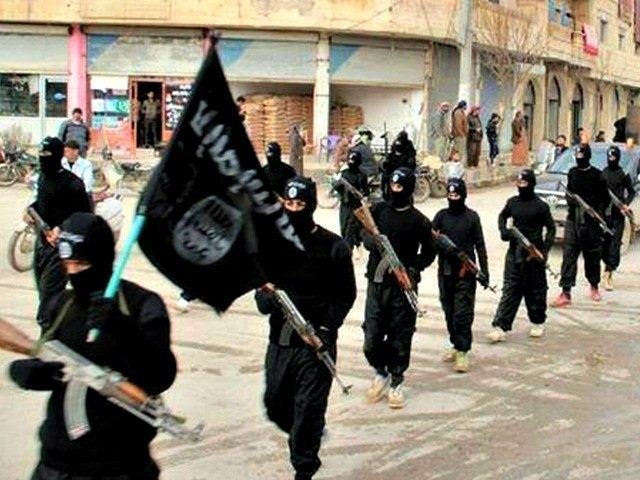With attacks or thwarted plots in Kuwait, Jordan, and Saudi Arabia in the past two weeks, the Islamic State (ISIS/ISIL/IS) appears to be expanding its reach in the Arab world outside of Syria and Iraq, where it established its “Caliphate.”
Kuwaiti officials announced Sunday they had uncovered three Islamic State attacks during the Ramadan season within the nation. Iraq’s southern neighbor said in a statement that at least one of the three planned attacks targeted a Shi’ite mosque.
“Kuwait security agencies have carried out three pre-emptive operations in Kuwait and abroad that led to derailing a number of Islamic State (IS) plots targeting Kuwait and arresting several IS members,” the Kuwait Interior Ministry confirmed.
While failing in Kuwait, Islamic State operatives succeeded in Jordan and Saudi Arabia, home to the holiest cities in Islam, Mecca, and Medina. In Jordan, ISIS jihadis struck on the border on June 20. ISIS suicide bombers killed six border guards and injured another 14 near a refugee camp hosting a mostly Syrian population. As The Long War Journal notes, this was the first successful terrorist attack within Jordan’s borders, though the Islamic State has committed acts of terror against the nation before, most prominently the burning alive of Jordanian pilot Mu’ath al-Kaseasbeh in 2015.
Jordan’s King Abdullah II has been one of the most outspoken critics of the Islamic State within the Muslim world and has called the fight against jihad the “Third World War.”
The Islamic State struck in Saudi Arabia Monday. A suicide bomber detonated himself near one of Islam’s most important sites: the Prophet’s Mosque in Medina, the second-holiest city in Islam. The blast killed four Saudi officers. Agence France-Presse notes another attack in Qatif, Saudi Arabia, targeted a Shiite cite.
Early Monday, a suicide bomber struck near the American consulate in Jeddah, Saudi Arabia. That suicide bomber failed to kill anyone, but injured two.
Unlike the Jordanian and Kuwaiti incidents, there is no confirmation that these attacks were Islamic State-related, but authorities note that their style suggests they were indeed conducted by ISIS sympathizers, if not jihadists with direct ties to ISIS head Abu Bakr al-Baghdadi. The man involved in the Medina attack had come to Saudi Arabia from Pakistan, a region toward which the Islamic State has targeted much of its recent propaganda.
The three Arabic countries attacked this month are majority Sunni and enjoy diplomatic ties with the United States, which President Obama has attempted to use to cooperate against the Islamic State. The bombings prove the Islamic State is ready to act and has many operatives willing to target even other Sunni Muslims.
Recent Islamic State attacks have resulted in the Obama White House, claiming, however, that ISIS is weaker, not increasingly popular, globally. Those who claim ISIS is weakening cite that its stranglehold on parts of Iraq and Syria is reducing. The traffic of foreign fighters into ISIS-controlled territory has fallen, as has the acreage of land controlled by al-Baghdadi.
“If you’re desperate and if you know you are losing, and you know you want to give up your life, then obviously you can do some harm,” Secretary of State John Kerry said of ISIS, following the siege of Turkey’s Atatürk Airport last month, which killed dozens.
The fact that fewer jihadists are flowing into Iraq and Syria while attacks elsewhere increase in frequency seems to imply that ISIS propaganda efforts to encourage individually planned attacks abroad is working. The Islamic State, however, has increased control of territory, as well – in Libya, where U.S. special envoy in the fight against ISIS Brett McGurk said in February the local branch is “the greatest cause for concern.”
That month, Libyan military commander Mahmoud Gazwan expanded on this declaration by asserting that ISIS is growing in Libya because “no one is fighting them.” The nation’s growing number of militias have invested too much time in fighting each other while the Islamic State has expanded its control of Libya’s oil fields.
Elsewhere, ISIS has recently struck in Bangladesh, Indonesia, and, for the first time, Malaysia.
Islamic State operatives have increasingly become more active in the United States, as well, most recently striking a gay nightclub in Orlando, Florida.

COMMENTS
Please let us know if you're having issues with commenting.